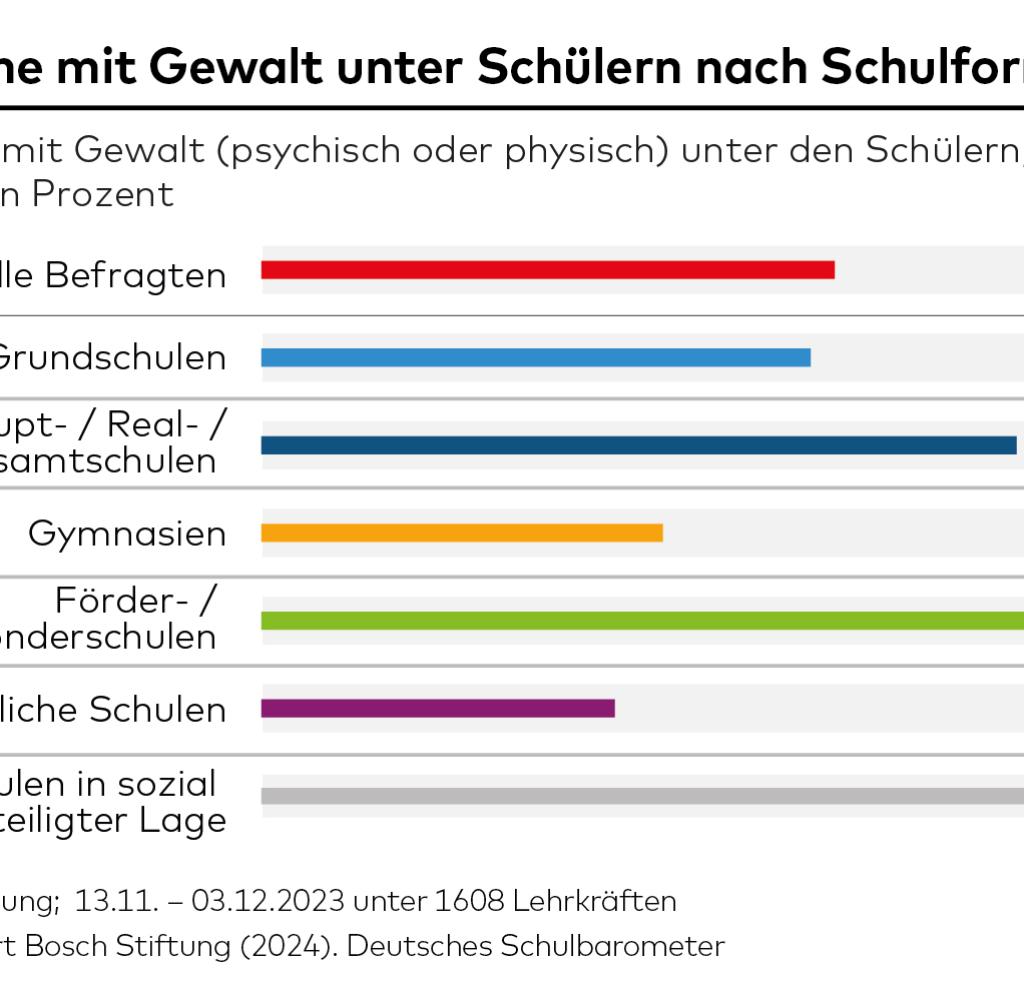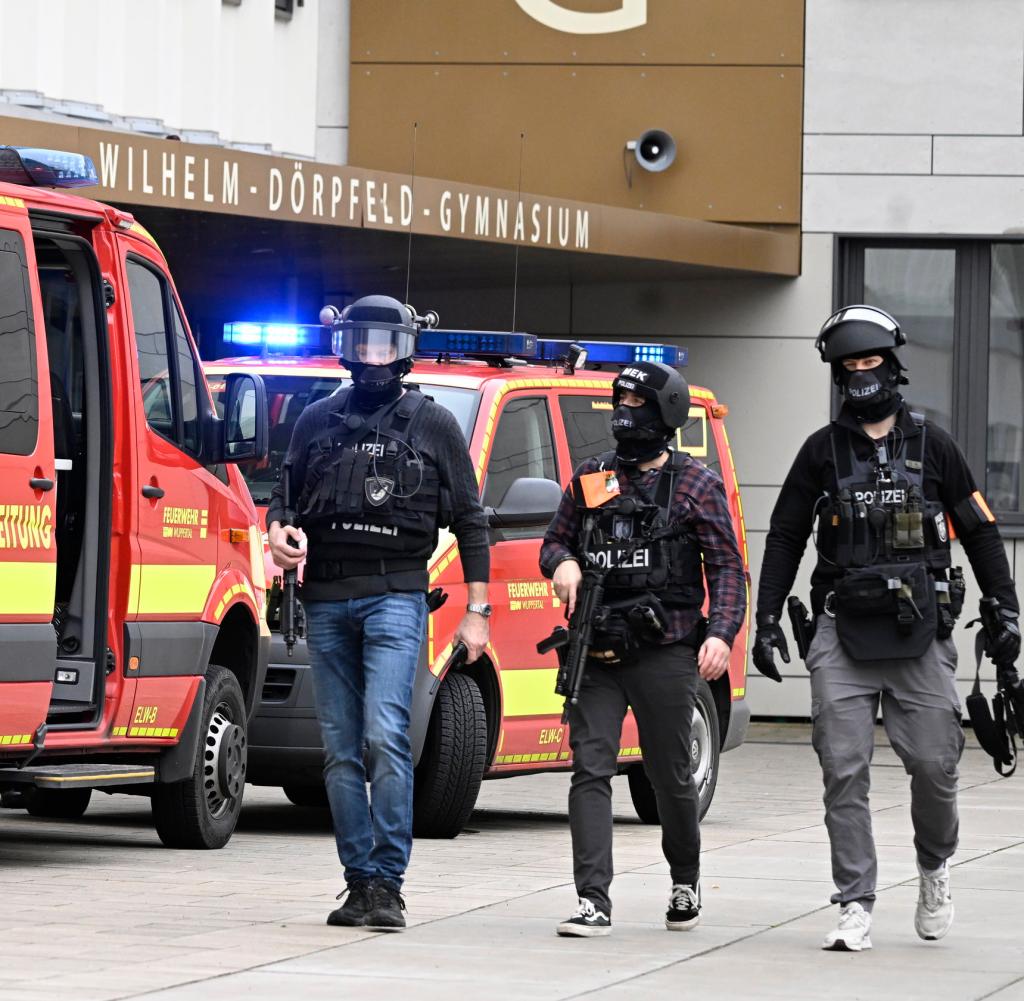EEducation experts are actually aware of this: Constant complaining about poor school performance, overworked teachers and the general lack of education does not make the teaching profession attractive to young people. “Speaking publicly about such data does not necessarily make the profession attractive to outsiders,” says psychologist Uta Klusmann from the Leibniz Institute for Science and Mathematics Education in Kiel. However, hiding unpleasant truths doesn’t get us anywhere.
And so the latest edition of the Robert Bosch Foundation’s German School Barometer, which Klusmann played a key role in writing, is also a document of depression: staff shortages, students with behavioral problems, violence and emotional exhaustion dominate everyday school life for more and more teachers. It’s almost surprising that in the end, 75 percent of the 1,608 teachers surveyed by Forsa said they were satisfied with their job itself.
This seems like a paradox, but it doesn’t necessarily contradict itself, says Klusmann: “The teachers like working with children and young people and are also committed. At the same time, they are exhausted because they are chronically stressed.” Compared to other OECD countries, satisfaction levels in Germany are also rather low, according to the study; said OECD survey is from 2018. More than a quarter of those surveyed would even leave school if they had the opportunity to do so.
Source: Infographic WELT
What exactly does the “look into the engine room of the German education system” show, as Dagmar Wolf, head of education at the Robert Bosch Foundation, calls it? The teachers surveyed currently see the greatest challenges in the behavior of the students (35 percent); In addition, more than a third mentioned dealing with heterogeneous classes in which the children and young people have very different cultural and family backgrounds as well as learning histories and may also have special support needs (33 percent; at primary schools: 45 percent). Multiple entries were possible.
When asked about the most urgent need for action at their own school, addressing the staff shortage (41 percent, primary schools: 51 percent), closely followed by investments in dilapidated school buildings and in technical and digital equipment (35 percent), was mentioned.
Physical and psychological violence among students
What is particularly serious, according to the survey, is that violence is playing an increasingly important role in everyday school life. Almost every second teacher (47 percent) sees a problem with psychological or physical violence among students at their own school. The study states that the information can be assessed as “worryingly high”. 45 percent of the teachers surveyed reported problems with violence in primary schools, 62 percent in secondary schools, secondary schools and comprehensive schools and 33 percent in high schools.
Schools in socially disadvantaged locations are particularly affected by violence (69 percent). “Especially in these schools, a lot of teaching time is spent on solving these problems,” says Wolf. This in turn comes at the expense of the learning outcomes. “It is precisely at these schools that we have the biggest problems with basic skills.”
Source: Infographic WELT
The foundation is very concerned about the issue of violence. “The number is very, very drastic,” said Wolf. “Here we have an issue that we have to monitor carefully and on which we as a society have an urgent need for action.” Accordingly, 68 percent of teachers stated that social skills and personal skills are the most important skills that schools must teach. Significantly fewer mentioned the transfer of knowledge and academic skills (47 percent).
The survey of teachers also shows that violence at their own school significantly increases the risk of burnout and stress among teachers. According to the survey, more than a third (36 percent) feel emotionally exhausted several times a week. Younger and female teachers and primary school teachers are particularly affected. “It seems particularly relevant that twelve percent of teachers stated that they experience symptoms of exhaustion on a daily basis,” the study continues.
18 percent also said that they feared that work would harden them emotionally at least once a week. The younger the teachers, the more likely they report exhaustion and cynicism.
“We still have too many lone fighters”
“We see the results as a snapshot of a sick system,” says Wolf. Teachers have long had to compensate for the consequences of the massive staff shortage and cope with ever new stresses. This leads to people starting their careers not wanting to start school at all or wanting to leave it quickly. “Some because they can’t withstand the pressure, others because they keep reaching their limits and can’t help the children and young people the way they imagined.” Professional well-being will be enormously important in the future To keep teachers in schools and make the profession more attractive for young people.
The study also shows that the work with children and young people itself still brings joy to teachers. The quality of relationships with students is generally considered to be very high. 97 percent of teachers think they are respected by students. 88 percent believe that they would be seen as role models, and 75 percent believe that students would also come to them with private problems. However, only 57 percent think that the existing psychosocial support offers at their schools are sufficient.
There is also clearly a lot of catching up to do when it comes to collaboration within the college. A quarter of the teachers surveyed said they had not received any feedback for their work in the past twelve months – neither from school management or colleagues, nor from students or through external tests.
Helmut Klemm, head of the Erlanger Eichendorff School, which was awarded the German School Prize last year, describes this as a “catastrophe”. “We still have far too many lone fighters,” says Klemm. “When young colleagues come to schools where there is no good onboarding and no team structures, where you don’t share joys and sorrows with each other, then you are often pretty much alone with your 8a in the 6th hour.”
Teaching is a strenuous, demanding profession that has changed significantly over the past few decades. But important elements that are common in other social professions are still missing, says Klemm. “We have no supervision, we have no peer advice, no established team structures and team hours. This is unspeakable.”
For the German School Barometer, 1,608 teachers at general and vocational schools in Germany were surveyed between November 16 and December 3, 2023 by the opinion research institute Forsa. The results obtained are representative, taking into account a possible error tolerance of plus/minus three percentage points.





